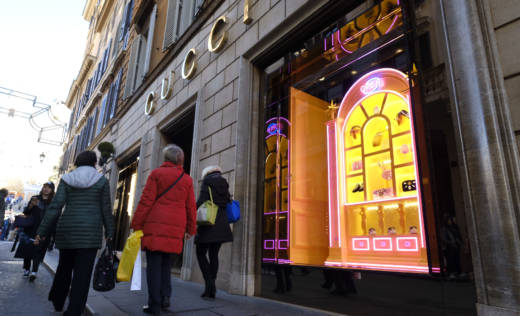Nigerian women who were trafficked to Italy to work as prostitutes have found work in a handbag and dressmaking shop that recently received some top-notch raw materials: 4,000 meters (4,374 yards) of leftover fabric from Gucci.
The initiative was announced Wednesday in Rome, complete with a fashion show by the Nigerian dressmakers and a group of Italian design students who helped teach them to sketch and sew the designs, which mix Gucci silks, satins and cotton with bright African prints.
Sister Rita Giaretta, who runs a home for rescued migrants in the southern city of Caserta, said the aim of the project was to give the women dignified work so they aren’t reliant on handouts.
“Giving them their dignity means putting them back on their feet and believing in themselves and not seeing themselves only as in a situation of need,” Giaretta said.
The New Hope tailoring cooperative, which has a storefront shop in Caserta, was born in 2004 as a project affiliated with Giaretta’s residence and until now made mostly bags and accessories.


